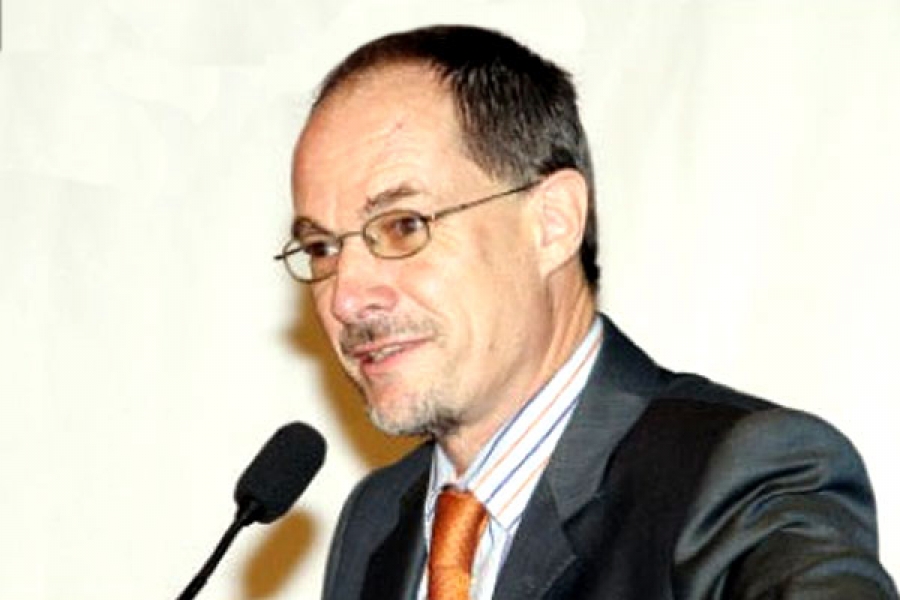Botswana unemployment rate remains high
Botswana will continue to experience high unemployment levels unless government implements previous recommendations that can improve doing business in the country. This is the clear message contained in a quarterly bulletin (Q1:2015) released by an economic think tank that is led by former Bank of Botswana’s second in command, Dr. Keith Jefferies.
Titled “Employment Creation - No Quick Wins,” the Econsult article makes it clear that it is only when there is a conducive business environment that the private sector can thrive and create sustainable and decent jobs. Botswana’s unemployment currently hovers above 19 percent, a rate that is regarded as high compared to other countries of the same economic status as the mineral-rich liberal democracy.
“While government should not meddle in how businesses operate, there is nevertheless scope for the government to influence the other issues related to unemployment, especially sluggish private sector growth,” notes the report compiled by Jefferies and economists Bogolo Kenewendo and Thabelo Nemaorani.
The economists suggest that the challenges of the private sectors that inhibit it from performing to the maximum are well documented as they have been discussed at length at various forums. For example, previous National Business Council (NBC) symposia have made recommendations on what could be done to achieve ease of doing business in Botswana which turns 50 next year.
These, among others, include reducing licence restrictions, assessing the impact of new regulations and proposed regulations on the private sector, registrations of electronics businesses and stability of utilities (water and power). This week, state power provider Botswana Power Corporation (BPC) implemented tight energy usage restrictions to deal with rising winter demand and limited capacity.
The current power situation is expected to impact on small to medium enterprises that have no backup energy sources. Water supply within the commercial city and surrounding areas such as Metsimotlhabe, Ramotswa and Mmopane has been impacted as Water Utilities Corporation (WUC) looks for supplies to replace the dry Gaborone Dam. These are just some of the problems facing the private sector which in the end affect companies’ ability to up production and hire more people.
The report also points out that there is a need for deliberate policies that are supportive of job creation by the private sector. This can be done through provision of certain incentives for the private sector to operate in Botswana. The report comes hot on the heels of recent government initiatives aimed at giving graduates workplace exposure. Addressing Parliament during the 2015/16 budget speech last February, finance minister Kenneth Matambo said the current unemployment rate of 19, 8 percent represented underutilisation of one of the country’s most important resources - human capital. “This is a challenge for the country, especially that it affects the youth,” said the minister. Matambo, who is having a second bite at the cherry as finance minister in a relatively new government, explained that the development budget of P12, 93 billion would go a long way in creating new jobs.
Botswana also needs foreign investors to help create much-needed jobs and cut the unemployment rate. “Roll out the red carpet and not the red tape,” said the three economists. “Relax immigration restrictions to make it much easier for foreign investors to come and set up businesses in Botswana.” The economists agree with Matambo that for future growth, employment creation should be led by the private sector, provided the turf is right for businesses to do so. “If the private sector is not growing, then there will be not many new jobs created,” says the report that was released last week.
The President of the Botswana Confederation of Commerce, Industry and Manpower (BOCCIM), Leta Mosienyane, has in the past chided government for encroaching into private sector space in certain sections of the economy. “Government should focus on regulation and leave business to the private sector,” Mosienyane told a BOCCIM gala dinner in November last year.
But when all has been said and done, slow job creation will continue to be a burning issue for socio-economic commentators and policymakers because there are factors that cannot be ignored. Econsult is of the view that structural issues such as low productivity in agriculture are also a concern, which means that income-earning opportunities are limited despite demand for labour in the sector.
Meanwhile, in a bid to up productivity in agriculture, especially the beef sub-sector, Botswana and New Zealand this week signed a three-year agreement for the latter to train farmers for better yields. Agriculture minister, Patrick Ralotsia and New Zealand’s High Commissioner to Botswana, Richard Mann, signed the deal at Ramatlabama Ranch Management Training Centre on Tuesday.
Econsult economists say there is a supply mismatch between graduates and prospective employers’ requirements, which are also an issue to blame for Botswana’s high unemployment rate.
The country is facing an uphill battle to create jobs in the face of sluggish economic growth. The economy is forecast to grow by about 5 percent, which is lower than the previous year.






